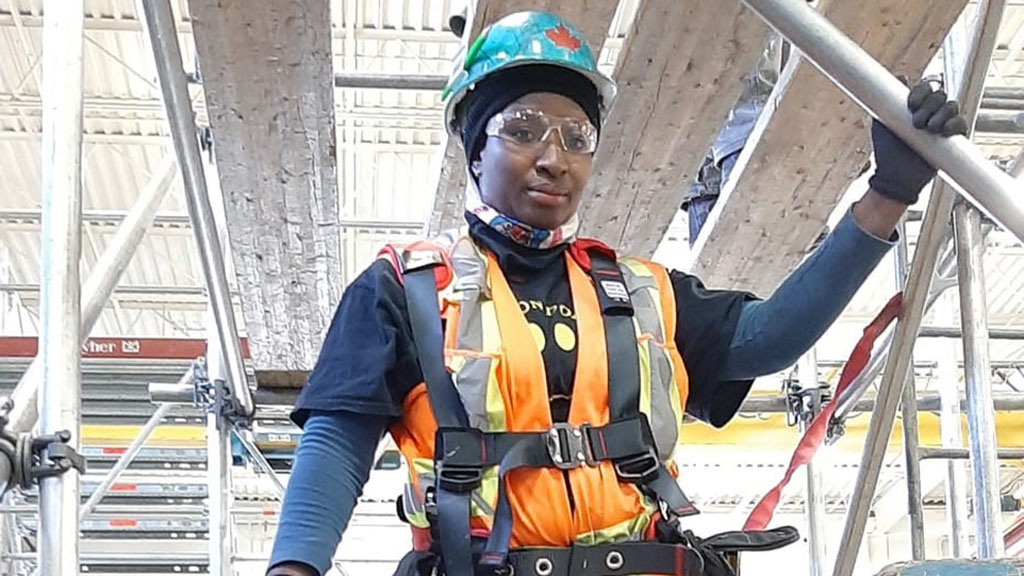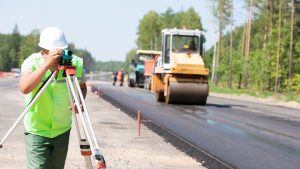Terrence Haynes, a plumber by trade, considers himself lucky to be a union worker in the construction industry.
“Earlier in my career, I definitely pushed back on being the Black guy in the union and I said, ‘you know what I just want to stay away from it,’ ” Haynes, executive board member at UA Local 46, explained.
“It wasn’t until recently that I understood that being Black might have gotten me into the room but being a plumber kept me in that room.
“It’s because of what you do, not who you are. I’m here to represent plumbing and let people know there are plumbers who look like me.”
Haynes was a presenter at a workshop session entitled Starting your Career in �鶹��ý����ion. The session was organized by Afropolitan Canada and facilitated by Rokhaya Gueye, founder of the Global Connection Venture.
It was meant to encourage and raise awareness about trades careers to the Black community.
Joseph Amankrah, co-founder and former president of the Camara Vocational Training Network said people have to know what opportunities are available to them.
“A lot of our Black youth, male and female, have been excluded from this primarily because they are not aware of it. Also, they are not aware of the educational requirements to get into these skilled trades,” he said.
“When I formed Camara, I decided we have to inform the Black community in Ontario to understand what are the areas that are available. I call it the invisible skilled trades because they are invisible to the community.
“They also need to know what are the skilled trades? What is involved in the skilled trades? What is considered a skilled trade?”
Part of the problem is the stigma around the skilled trades with parents steering their children away from them.
“The belief is that only the people who fail go into the trades,” he said. “If you have that mindset, all the buildings you see around you, all the transportation you drive on, everything would be breaking down.
“This is the message that has to be sent out to a lot of young people who want to go into the trades to understand this is not for you if you failed in school, it is not a backup, it is a career.”
Haynes agreed the skilled trades should not be considered a back-up plan.
“I don’t want anyone to believe that construction is a fall back. I don’t want them to think that it’s for people that didn’t do well in school,” he said. “I want to go after that valedictorian. I want to go after that person who is about to graduate high school that got up every day, went to school, did everything right and really doesn’t know the path he or she wants, but just to reach out and tell them that we want and need people like you.”
Being in the trades allows people to be independent and have a sense of self, he added.
“From the first day that you work until the last day that you do your apprenticeship you are just making money and you are getting knowledge,” Haynes noted.
“When they get in (to the trades) young I tell them don’t even think about what you make. Think about what you make on the back end. Think about how much your pension will be when you start at 20 years old and retire at 60.
“I make really good money and right now I work four days a week.”
Being a plumber or an electrician is an essential life skill, explained Stacey Ann Berry, founder and president of Bstellar Group Inc.
“The conversation about what it means to be in the skilled trades starts at home, with parents, with people who mentor young people so they can see that it is just as valuable as being a doctor or a lawyer. One is not more important than the other,” she pointed out. “Parents really need to start teaching their kids that concept of independence, building your own construction company, your own landscaping company, these are things of value that can help you build true lasting wealth and have something to pass to generations.
“In order to have true wealth in our communities we have to have skills that we can put into the marketplace,” she added. “A lot of people today want to be entrepreneurs but they are not seeing the intersection of ‘I can be a plumber and build my own plumbing company.’
“You can go into construction and create opportunities for your own people who have barriers to employment.”
Follow the author on Twitter .











Recent Comments
comments for this post are closed